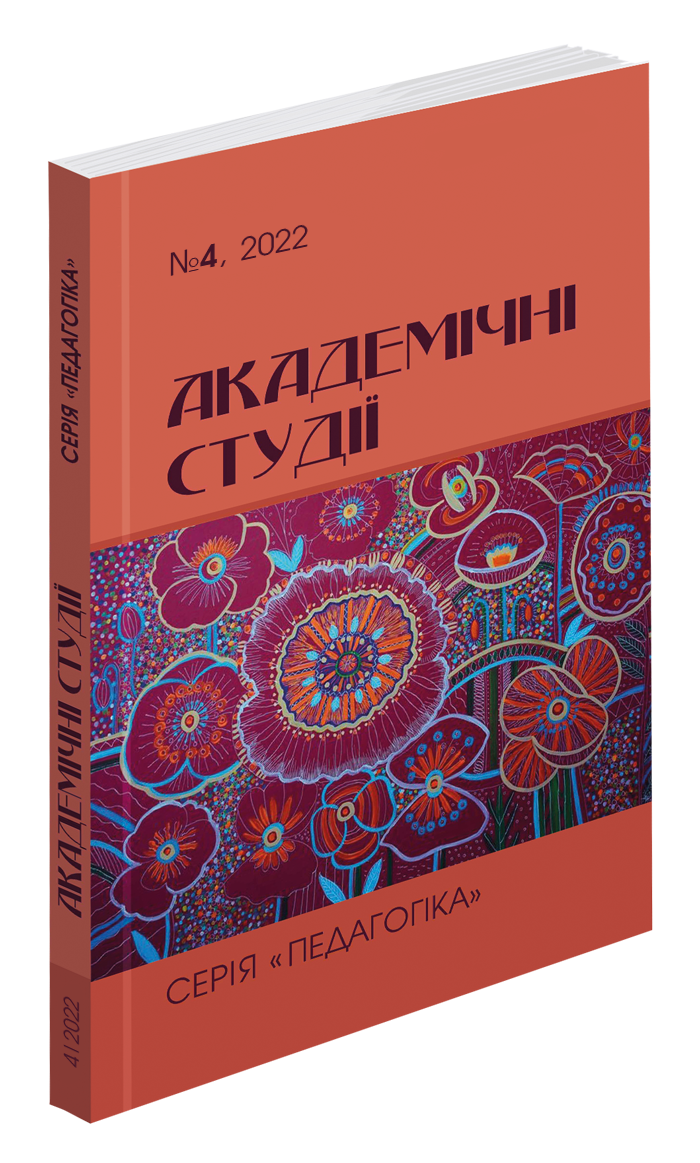Abstract
Modern music education strives to find clear parameters of the ratio of traditional and innovative approaches to learning, which maximally contribute to the creative disclosure of the personality and create conditions for the psychological and emotional comfort of future professionals. Transformational processes, in particular, the accentuation of education on the practical and independent training of musicians in educational institutions of the artistic direction, gave the impetus for determining the content of educational programs for musical-theoretical and practical professional training of students. The tasks of the latest programs are to create educational complexes that structurally resemble a triangle or a pyramid, at the base of which is a complex of disciplines of a musical and theoretical direction, then special professional disciplines and the top is practical training. The interaction of these complexes develops musical thinking, creative imagination, emotional openness, and most importantly, it has a communicative aspect. The effectiveness of the implementation of any learning model depends on a number of factors – motivation, value system, cultural context, because the essence of the learning process is the formation of a personality, provision of conditions for the development of the student’s spiritual forces, his socialization, expansion of musical and performance experience, mastery of cultural models in personal development. The search for new progressive learning technologies in the field of music-pedagogical education, which is taking place against the background of the reform of higher education in Ukraine, within this process there is a qualitative transition from an old-style music teacher to the formation of a specialist of a qualitatively new formation, who is able to anticipate changes and respond to them in a timely manner at a high professional level. It is, first of all, about the formation of improvisation skills in the future music teacher, which allows to ensure his professional mobility and competitiveness. Thanks to the spread of forms of free music making, the popularization of various pop and jazz genres and styles, it became necessary to develop a new technique in the musician – improvisational. It is based on such skills as playing by ear, the ability to skilfully modulate or transpose, the ability to play any musical idea impromptu, etc. Thus, improvisation skills are an integral attribute of a musician’s creativity, which indicates his level of professionalism and skill.
References
Денисюк І. Формування навичок імпровізації майбутніх учителів музики у процесі інструментально-виконавської підготовки : дис. канд. пед. наук :13.00.02; Національний педагогічний університет ім. М.П. Драгоманова. Київ, 2017. С. 256.
Колосовська О. Імпровізація як розвиток творчої фантазії (через призму джазового виконавства). Актуальні питання гуманітарних наук. 2014. Вип. 8. С. 129–132.
Ніколаєвська Ю.В. Аутентична виконавська стратегія та її сучасні трансформації. Аспекти історичного музикознавства. 2017. Вип. 10. С. 180–198.
Стецюк Б.О. Джазова фортепіанна імпровізація як полістилістичний феномен (на прикладі творчості Ч. Коріа) : дис. канд. мистецтвозн. : 17.00.03 ; Харківський національний університет мистецтв ім. І.П. Котляревського. Харків, 2019. 208 с.
Тормахова В., Боб Столофф: техніка джазової імпровізації. ІІІ міжнародна науково-практична конференція «Україна у світових глобалізаційних процесах: культура, економіка, суспільство». 24–25 березня 2021 р. Київ, 2021. С. 68–70.
Денисюк І. Сучасний стан сформованості навичок імпровізації майбутніх учителів музики. Теоретико- методичні проблеми виховання дітей та учнівської молоді: зб. наук. праць. Інститут проблем виховання НАПН України. Вип. 21, Київ, 2017. С. 169–180. 7. Реброва О. Є. Методологія і методи досліджень педагогіки мистецтва. навч.-метод. посіб. для студ. і магістрантів ін.-тів мистецтв. пед. ун-тів. Південноукр. нац. пед. ун-т ім. К. Д. Ушинського. Київ, 2011. 84 с.
Aebersold J. Jazz. USA : Advance Music, 1992. 145 р.
Baker D. Jazz Improvization. A Comprehensive Method for All Musicians, 1999. 128 p. Amade J. Jazz improvisation how to play it and teach it. – N.Y., 1967. Choksy L. Teaching music in the twentieth century / L. Choksy. – New York : Englewood Cliffs : Prentice-Hall Cop., 1986. 343 p.

